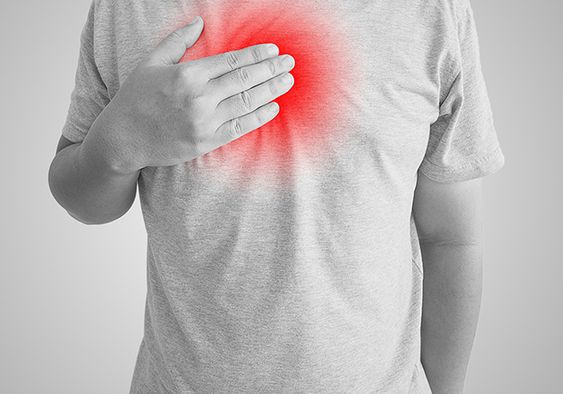Introduction
Heartburn, also known as acid indigestion, is a common condition characterized by a burning sensation in the chest, just behind the breastbone. This discomfort often rises up towards the neck and throat, leaving an unpleasant, bitter taste in the mouth. While occasional heartburn is usually nothing to worry about, frequent or severe episodes can significantly impact your quality of life and may indicate a more serious underlying condition.

This burning sensation is caused by stomach acid backing up into the esophagus, the tube that carries food from your mouth to your stomach. The esophagus is not equipped to handle the strong acids produced by the stomach, leading to irritation and inflammation.
What Does Heartburn Feel Like?
The primary symptom of heartburn is a burning pain that begins in the upper abdomen or lower chest and moves up towards the neck. This sensation can range from mild to severe, and it may worsen after eating, lying down, or bending over.
Other common symptoms associated with heartburn include:
- Regurgitation: A sour or bitter taste in the mouth caused by stomach acid flowing back up the esophagus.
- Dysphagia: Difficulty swallowing, often described as a feeling of food getting stuck in the throat.
- Nausea: An uneasy feeling in the stomach that may lead to vomiting.
- Chest pain: While heartburn and heart attacks can cause chest pain, it's crucial to seek immediate medical attention if you experience severe, crushing chest pain that radiates to your arms, jaw, or back.
Causes of Heartburn
Several factors can contribute to the development of heartburn, including:
- Certain foods and drinks: Spicy or greasy foods, citrus fruits, tomatoes, caffeine, and alcohol can trigger heartburn in some individuals.
- Lifestyle habits: Smoking, overeating, and lying down immediately after meals can increase the risk of acid reflux.
- Obesity: Excess weight can put pressure on the stomach, pushing stomach acid into the esophagus.
- Pregnancy: Hormonal changes and increased pressure on the abdomen during pregnancy can worsen heartburn.
- Certain medications: Some medications, such as anti-inflammatory drugs and muscle relaxants, can relax the lower esophageal sphincter, making it easier for acid to back up.
- Medical conditions: Gastroesophageal reflux disease (GERD), hiatal hernia, and peptic ulcers are some conditions associated with frequent or severe heartburn.
Treating Heartburn
Treatment options for heartburn depend on the frequency and severity of symptoms. Lifestyle modifications often play a significant role in managing heartburn:
- Dietary changes: Avoiding trigger foods, eating smaller, more frequent meals, and limiting caffeine and alcohol intake can help reduce symptoms.
- Weight loss: Losing even a small amount of weight can alleviate pressure on the stomach and improve heartburn.
- Elevating the head of the bed: Raising the head of the bed by 6-8 inches can help prevent acid reflux during sleep.
- Quitting smoking: Smoking weakens the lower esophageal sphincter, increasing the likelihood of acid reflux.
If lifestyle changes don't provide sufficient relief, over-the-counter or prescription medications may be recommended:
- Antacids: These medications neutralize stomach acid, providing rapid but short-term relief.
- H2 blockers: These drugs reduce the amount of acid your stomach produces.
- Proton pump inhibitors (PPIs): These medications are the most effective treatment for severe heartburn and GERD, blocking acid production in the stomach.
Conclusion
Heartburn is a common ailment that can significantly impact quality of life. Understanding its causes, symptoms, and treatment options is crucial for managing this condition. By making necessary lifestyle modifications and seeking appropriate medical advice, individuals can effectively control heartburn and prevent its long-term consequences.





